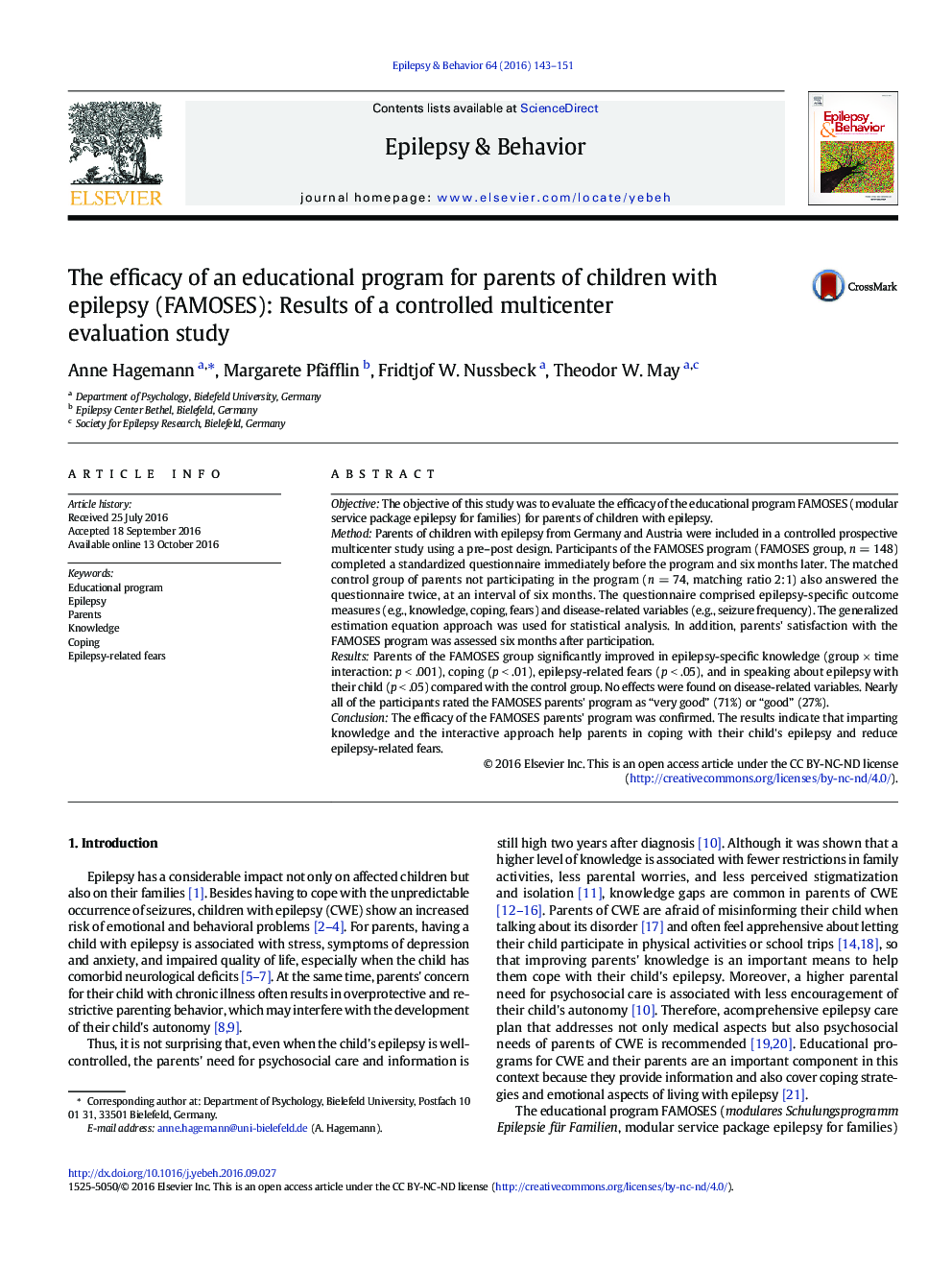| Article ID | Journal | Published Year | Pages | File Type |
|---|---|---|---|---|
| 5628096 | Epilepsy & Behavior | 2016 | 9 Pages |
â¢We evaluated the educational program FAMOSES for parents of children with epilepsy.â¢The controlled prospective multicenter study confirmed the efficacy of FAMOSES.â¢FAMOSES participants improved in knowledge, coping, and epilepsy-related fears.â¢Parents' satisfaction with the program was high even six months after participation.â¢The FAMOSES program is a valuable component of comprehensive epilepsy care.
ObjectiveThe objective of this study was to evaluate the efficacy of the educational program FAMOSES (modular service package epilepsy for families) for parents of children with epilepsy.MethodParents of children with epilepsy from Germany and Austria were included in a controlled prospective multicenter study using a pre-post design. Participants of the FAMOSES program (FAMOSES group, n = 148) completed a standardized questionnaire immediately before the program and six months later. The matched control group of parents not participating in the program (n = 74, matching ratio 2:1) also answered the questionnaire twice, at an interval of six months. The questionnaire comprised epilepsy-specific outcome measures (e.g., knowledge, coping, fears) and disease-related variables (e.g., seizure frequency). The generalized estimation equation approach was used for statistical analysis. In addition, parents' satisfaction with the FAMOSES program was assessed six months after participation.ResultsParents of the FAMOSES group significantly improved in epilepsy-specific knowledge (group Ã time interaction: p < .001), coping (p < .01), epilepsy-related fears (p < .05), and in speaking about epilepsy with their child (p < .05) compared with the control group. No effects were found on disease-related variables. Nearly all of the participants rated the FAMOSES parents' program as “very good” (71%) or “good” (27%).ConclusionThe efficacy of the FAMOSES parents' program was confirmed. The results indicate that imparting knowledge and the interactive approach help parents in coping with their child's epilepsy and reduce epilepsy-related fears.
